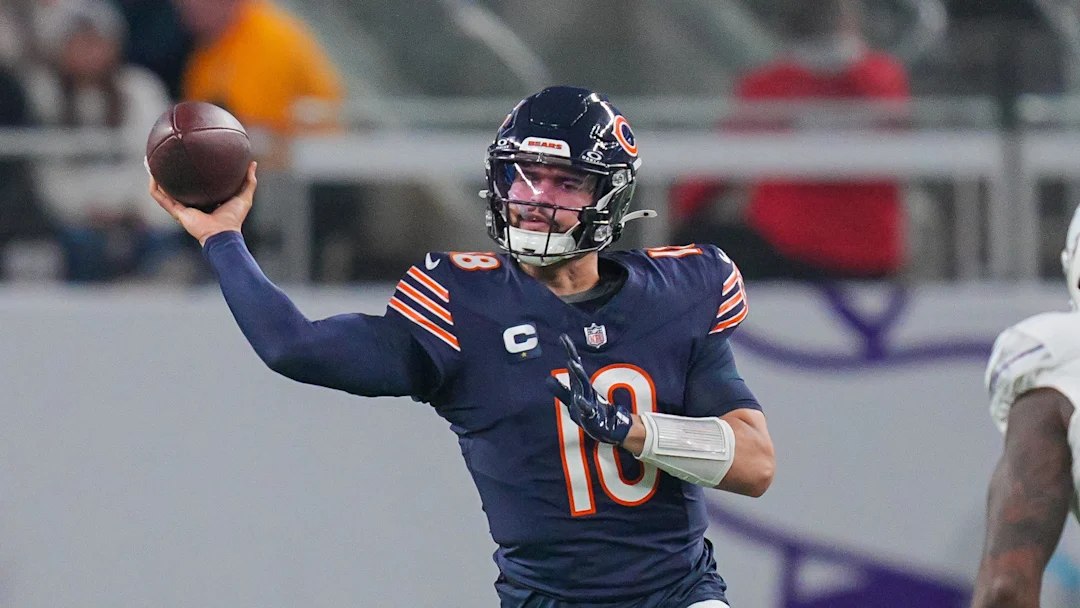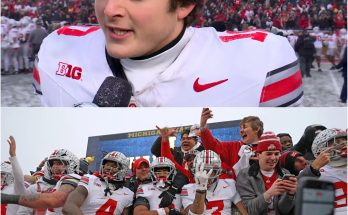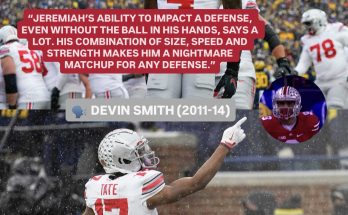The Chicago Bears, with a long history of NFL success, find themselves at an important crossroads as they look toward the 2025 season. Although they failed to make the playoffs in 2024, the question that looms large for both fans and analysts alike is whether the Bears can rebound in 2025 and return to playoff contention. In this examination, we’ll compare the Bears to other non-playoff teams to evaluate their 2025 rebound potential, taking into account factors such as roster composition, coaching stability, quarterback play, and long-term organizational direction.
Understanding the 2024 Playoff Picture
Before diving into the specific comparison, it’s important to briefly outline the landscape of the NFL in 2024. In an era dominated by explosive offenses and dynamic quarterbacks, the teams that made the playoffs in 2024 tended to have strong, consistent quarterback play, a solid defense, and a well-rounded roster. The NFL’s playoff field continues to be incredibly competitive, and for teams like the Bears, breaking through requires more than just one or two standout performances—it requires a balanced effort from all facets of the team.
The non-playoff teams in 2024 were largely divided into a few categories: those in the middle of a rebuild, those suffering from injuries or underperformance, and those that might have been a quarterback or a key player away from contending. The Bears fall into the first category, and their path forward requires addressing several areas of weakness, notably quarterback play and roster development.
Roster Composition: Comparing the Bears to Other Non-Playoff Teams
The Bears’ roster is built around young talent, with key players like quarterback Justin Fields, running back Khalil Herbert, and defensive standout Roquan Smith forming the core of the team. However, compared to other non-playoff teams, the Bears’ roster is still in the midst of a rebuild, with several glaring holes in both the offense and defense. The lack of a strong supporting cast around Fields has been a persistent issue, and the defensive unit has also seen its fair share of struggles, especially in the secondary.
Key Comparisons
- Houston Texans: The Texans, like the Bears, are rebuilding, but their key difference lies in their quarterback situation. Houston is in the early stages of development with rookie quarterback C.J. Stroud, who showed promise in 2024. While the Bears have Fields, Houston’s commitment to their young QB gives them a clear direction moving forward. Additionally, the Texans have a promising defense, led by young playmakers like Will Anderson Jr. and Jalen Pitre, making them one of the most exciting teams for a potential 2025 rebound.
- Arizona Cardinals: Arizona, another team that missed the playoffs in 2024, faces similar challenges with its roster, though their quarterback situation is murkier. Kyler Murray’s health and ability to return to form after an ACL injury is central to Arizona’s future. Like the Bears, the Cardinals have some impressive young talent, including wide receiver Marquise Brown and linebacker Zaven Collins. However, Arizona has struggled with offensive line issues and defensive inconsistency. If Murray returns healthy, they could make a quick rebound in 2025, but much depends on his development and the coaching staff’s ability to get the most out of their young roster.
- Indianapolis Colts: Indianapolis, despite missing the playoffs, has a relatively solid foundation with rookie quarterback Anthony Richardson and a promising defense. The Colts also boast a dynamic running back in Jonathan Taylor, and their offensive line remains one of the better units in the league. Richardson’s progression as a passer is key to their 2025 potential, but much like the Bears, the Colts are still figuring out their offensive identity. However, the Colts’ roster depth and strong coaching staff give them a significant edge in terms of 2025 rebound potential compared to the Bears, whose rebuild has yet to yield the same level of stability.
Coaching and Organizational Stability
A critical aspect of any NFL team’s ability to rebound is the stability and quality of its coaching staff. This is an area where the Bears’ outlook for 2025 could go in a few different directions. Head coach Matt Eberflus, hired in 2022, is still in the early stages of his tenure, and his coaching staff has faced significant growing pains. While Eberflus is respected for his defensive acumen, his offensive vision—especially in terms of developing Justin Fields—has been a point of contention.
Coaching Stability in Comparison
- Detroit Lions: A key comparison for the Bears is the Detroit Lions, who were also rebuilding in recent years but experienced a dramatic turnaround in 2024. Head coach Dan Campbell’s leadership has brought stability, and his aggressive, player-first philosophy has revitalized the team. With a top-10 offense and a solid defense, the Lions’ success under Campbell offers a stark contrast to the Bears, who are still searching for similar continuity and growth from their coaching staff. The Lions’ success also highlights the importance of having a cohesive plan and leadership in place, something the Bears will need to ensure in 2025.
- Denver Broncos: Another coaching comparison could be the Denver Broncos, where the arrival of head coach Sean Payton in 2024 was intended to stabilize the franchise and unlock the potential of quarterback Russell Wilson. However, despite Payton’s reputation and track record of success, the Broncos were still far from playoff contention, showing that even with a top-tier coach, the path to success is never guaranteed without the right pieces in place. The Bears face a similar challenge in 2025: while Eberflus may have the defensive side of the ball under control, his ability to guide Fields and elevate the offense will be the most significant factor in whether the Bears can rebound.
- Carolina Panthers: The Panthers, another team that missed the playoffs in 2024, went through significant changes under first-year head coach Frank Reich. The Panthers drafted rookie QB Bryce Young, who showed potential despite playing in a challenging offensive system. While the Bears have had the advantage of a few years of development with Fields, the Panthers’ commitment to Young and Reich’s coaching experience gives Carolina an opportunity to turn things around faster than Chicago, especially with a more cohesive offensive plan in place.
Quarterback Play: The Bears’ Most Pressing Concern
Perhaps the most important factor in evaluating the Bears’ 2025 rebound potential is the play of their quarterback, Justin Fields. Fields has shown flashes of brilliance as a dual-threat quarterback, combining strong arm talent with the ability to make plays with his legs. However, his development has been hampered by inconsistent play, a lack of quality offensive line play, and limited weapons on the outside. The key question for Bears fans—and the franchise itself—is whether Fields can make the leap in 2025 into a true franchise quarterback capable of leading a playoff-caliber team.
Comparisons to Other Quarterbacks
- Atlanta Falcons (Desmond Ridder): The Falcons, like the Bears, are in the midst of evaluating a young quarterback in Desmond Ridder. While Ridder did not have a standout 2024 campaign, his development is still a work in progress. The Falcons have one of the league’s top running games, led by standout back Bijan Robinson, and a solid defense. If Ridder can improve, the Falcons could be a sleeper team for a 2025 rebound. However, Atlanta’s offensive depth—particularly in the running game—could make Ridder’s transition easier compared to Fields, who is still awaiting that same level of stability on offense.
- Tennessee Titans (Will Levis): The Titans are also rebuilding with a young quarterback in Will Levis, drafted in 2024. Much like Fields, Levis has tools but needs development and consistency. However, the Titans have a strong running game with Derrick Henry and a defense that keeps them competitive. This foundation could allow Levis to develop at a quicker pace than Fields, and the Titans may be ahead of the Bears in terms of building a team capable of contending in 2025.
- Las Vegas Raiders (Jimmy Garoppolo/Jared Stidham): The Raiders are an example of a team with more question marks at the quarterback position but one that still has enough talent to potentially rebound. Jimmy Garoppolo and Jared Stidham failed to spark the offense in 2024, but with wide receivers like Davante Adams and a talented running back in Josh Jacobs, the Raiders are not as far from contention as their quarterback play might suggest. The Raiders, like the Bears, need stability at the quarterback position to truly break out, but their supporting cast might allow them to make a playoff push even without elite quarterback play.
Long-Term Organizational Direction
Finally, the Bears’ ability to rebound in 2025 and beyond will be determined not only by the immediate performance of the team but also by the organization’s long-term direction. The Bears are under new general management, with Ryan Poles taking over as general manager in 2022. Poles has begun to build the team with a focus on drafting and developing young talent, but his success will depend largely on how he handles the next few seasons. While other franchises, such as the Detroit Lions and Indianapolis Colts, have clear, stable long-term plans, the Bears will need to execute their vision in 2025 and beyond.
Conclusion
In comparison to other non-playoff teams, the Bears find themselves in a similar position to many teams at the start of their rebuilds, with some hope for the future but several major areas needing attention. Unlike teams like the Lions or Colts, who have clearer and more developed long-term plans, the Bears’ future hinges on the development of Justin Fields, the consistency of their coaching staff, and the effectiveness of their front office in building a competitive roster.
Given the competitive nature of the NFL, a rebound in 2025 will not come easy. However, the Bears’ 2025 potential depends largely on Fields’ development, improvements in roster construction, and the stability of coaching leadership. If the Bears can make strides in these areas, they could position themselves for a more successful 2025, though the road to playoff contention will remain challenging.



